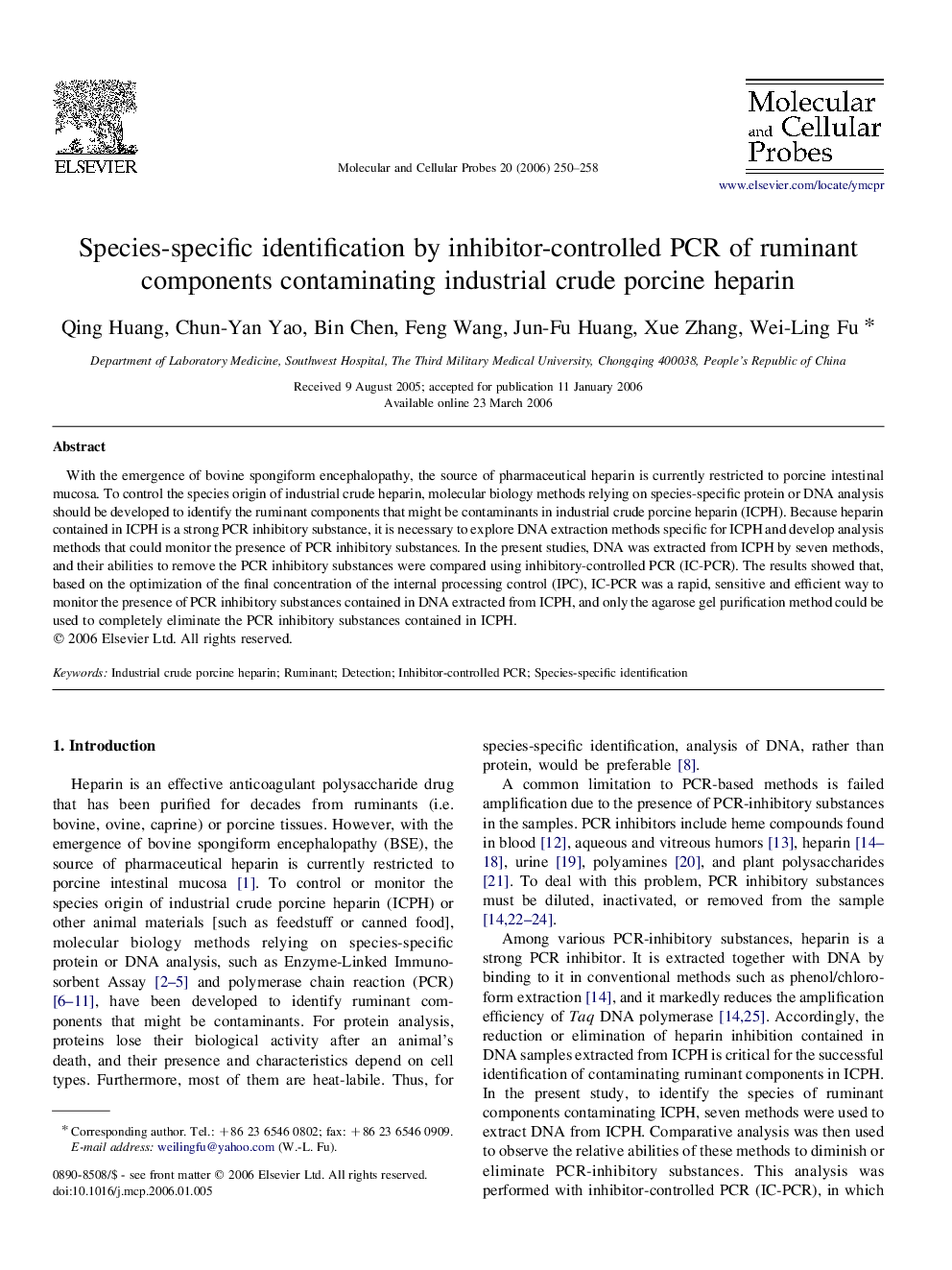| Article ID | Journal | Published Year | Pages | File Type |
|---|---|---|---|---|
| 2200193 | Molecular and Cellular Probes | 2006 | 9 Pages |
With the emergence of bovine spongiform encephalopathy, the source of pharmaceutical heparin is currently restricted to porcine intestinal mucosa. To control the species origin of industrial crude heparin, molecular biology methods relying on species-specific protein or DNA analysis should be developed to identify the ruminant components that might be contaminants in industrial crude porcine heparin (ICPH). Because heparin contained in ICPH is a strong PCR inhibitory substance, it is necessary to explore DNA extraction methods specific for ICPH and develop analysis methods that could monitor the presence of PCR inhibitory substances. In the present studies, DNA was extracted from ICPH by seven methods, and their abilities to remove the PCR inhibitory substances were compared using inhibitory-controlled PCR (IC-PCR). The results showed that, based on the optimization of the final concentration of the internal processing control (IPC), IC-PCR was a rapid, sensitive and efficient way to monitor the presence of PCR inhibitory substances contained in DNA extracted from ICPH, and only the agarose gel purification method could be used to completely eliminate the PCR inhibitory substances contained in ICPH.
